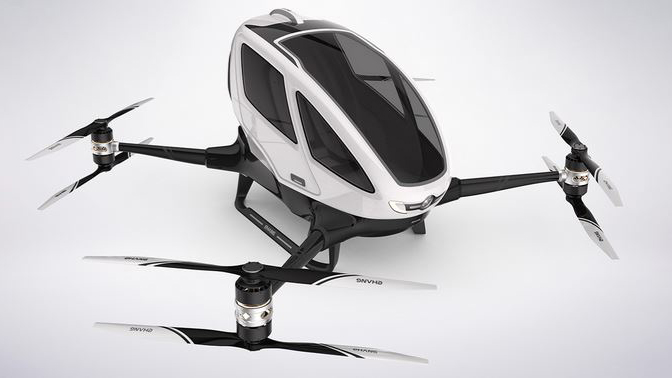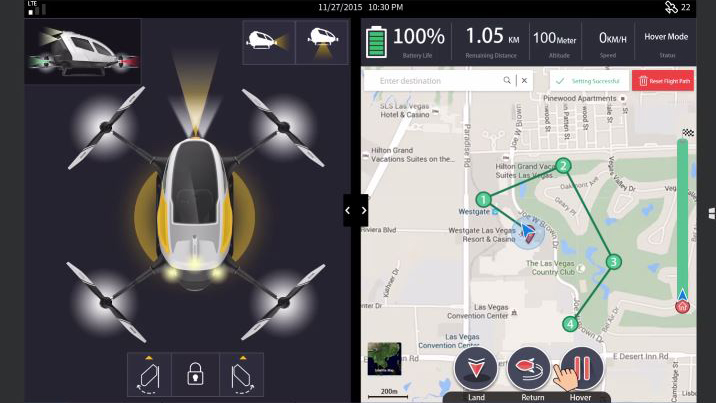
Introducing the world’s first passenger drone
Say hello to the latest development in pricey personal transport
Ever dreamed of slashing your commute time with your very own flying vehicle? It could soon become a reality, provided you have between $200,000 and $300,000 to spare. Around £200k, in other words.
Chinese company Ehang Inc has invented the world’s first passenger drone, unveiled this week at the CES tech show in Las Vegas.
According to the company's website, the single-seat Ehang 184 is capable of flying for 23 minutes at a quoted average speed of 60mph, with at least two hours needed for a single charge of its batteries between trips.
The optimal cruising altitude lies between 1,000 and 1,650 feet, although the drone can reach a maximum height of 11,500 feet; roughly a third of what you’d expect from a typical commercial airliner as you head off on holiday.
Your six-figure outlay buys a standard equipment list that includes... air con and a reading light. Just like you get in your commercial airliner seat, then, though it doesn't compare particularly favourably with an £8,000 supermini's kit list.
There are other drawbacks. The drone can only carry 100kg of cargo, so your own body weight will decide how much luggage you can bring.
And then there are the ‘controls’. After plotting a point-to-point route using the on-board tablet device, the passenger has only two commands available: ‘take-off’ and ‘land’.
The lack of hardware and basic electronic inputs are designed so that anyone can use them, although in the event of an emergency it will mean that the occupant’s safety will entirely rely on the drone’s automated systems. Which might be a concern to potential customers. And the authorities. And lawyers.
To Ehang’s credit its invention does break new ground in personal aviation, although it will be a long time yet before trains and, more imporantly, cars are rendered obsolete. Phew.
Top Gear
Newsletter
Thank you for subscribing to our newsletter. Look out for your regular round-up of news, reviews and offers in your inbox.
Get all the latest news, reviews and exclusives, direct to your inbox.
Trending this week
- Car Review
BMW 1 Series
- Top Gear's Top 9
Nine dreadful bits of 'homeware' made by carmakers









